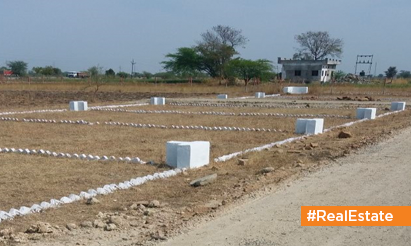Will Real Estate Suffer by High Home Prices & Rising Interest Rates in 2023–2024?
The real estate sector has experienced significant growth in recent years, with high home prices being a notable trend in many markets. Additionally, the anticipation of rising interest rates has raised concerns about the potential impact on the real estate sector in 2023-24. In this article, we will examine the possible consequences of these factors on the real estate market.
High Home Prices:
High home prices can pose challenges for both homebuyers and the overall real estate market. While rising prices may benefit sellers, they can deter potential buyers, especially first-time homebuyers and those with limited budgets. Affordability becomes a concern, potentially leading to decreased demand for properties. Additionally, high prices may result in increased loan burdens and impact the ability of borrowers to secure financing.
Demand-Supply Dynamics:
The relationship between demand and supply plays a crucial role in the real estate market. High home prices may lead to a decrease in demand, impacting the overall demand-supply dynamics. If demand significantly decreases, it could result in a surplus of inventory, leading to a potential slowdown in the market. Developers and sellers may need to adjust their pricing strategies to align with the changing market dynamics.
Rising Interest Rates:
The anticipation of rising interest rates is a factor that can affect the real estate market. Higher interest rates can impact the affordability of homebuyers, as it increases the cost of borrowing. This can lead to a reduction in the demand for housing, as potential buyers may delay their purchase decisions or choose to explore other investment options. Additionally, rising interest rates can also impact the profitability and viability of real estate development projects, potentially leading to a slowdown in new construction activities.
Regional Variations:
It’s important to note that the impact of high home prices and rising interest rates can vary across regions. Some markets may be more resilient due to factors such as strong local economies, job growth, and limited supply. On the other hand, markets heavily reliant on speculative investments or experiencing oversupply may be more vulnerable to price corrections and decreased demand.
Government Intervention:
Government policies and interventions can significantly influence the real estate sector’s response to high home prices and rising interest rates. Authorities may implement measures to support affordability, such as providing incentives for affordable housing, introducing regulations to curb speculative activities, or adjusting interest rate policies to stimulate demand. These interventions can mitigate the potential negative impact on the sector.
While high home prices and rising interest rates may present challenges for the real estate sector in 2023-24, it’s important to consider various factors that can influence the market’s response. Affordability concerns, potential changes in demand-supply dynamics, and the impact on borrowing costs are factors to watch closely. However, regional variations and government interventions can play a significant role in shaping the overall impact on the real estate sector. It is essential for industry stakeholders, policymakers, and investors to closely monitor market conditions, adapt to changing dynamics, and implement strategies to ensure a sustainable and resilient real estate sector.
Disclaimer: The views expressed above are for informational purposes only based on industry reports and related news stories. PropertyPistol does not guarantee the accuracy, completeness, or reliability of the information and shall not be held responsible for any action taken based on the published information.



